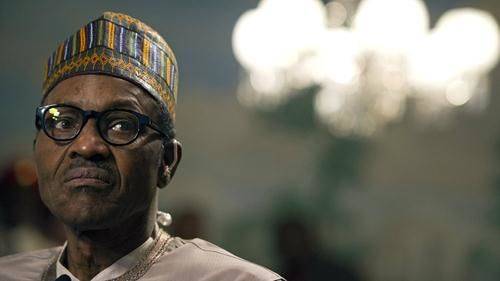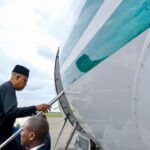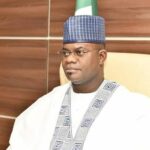
As the effervescence of Nigeria’s political terrain builds up to a crescendo with the approach of 2019 general polls, one of the most talked about issues remains the bid for a second term in office, by incumbent President Muhammadu Buhari. Until recently the prospects of his bid was confined to the realm of conjecture as the impression spun by the administration’s officials was that he was too busy with the onerous task of pursuing the actualization of his campaign promises, to be bothered with whatever distraction that may arise from the bid for a second term. Incidentally all of that has changed with the confirmation through several angles that Buhari will certainly not only contest the poll in 2019 for a second term in office, but more significantly he may in all probability emerge as the candidate of the ruling All Progressives Congress (APC). With such development, projections on Nigeria political future as from May 29th 2019 have coalesced into at least two major streams, with Nigerians divided on whether he should run or not.
The proponents of a Buhari candidacy in 2019 hinge their argument on their perception of what they consider as landmark achievements of the administration. Some of these were recently reeled out by the Minster of Information Lai Mohamed, in response to an equally recent scathing criticism of the administration by former President Olusegun Obasanjo in a 13 page letter. The high point of Obasanjo’s epistle was a call on incumbent Buhari not to seek re-election in 2019. Yet even as Mohamed’s catalogue shows, most of the achievements under consideration remain half or partially executed projects whose benefits are yet to materialize for the utility of the Nigerian citizenry. Besides, many of the projects were in the main started by the previous administration of Dr Goodluck Jonathan with additional work on them coming from the present administration. The pro ‘Buhari for 2019’ lobby are arguing that the completion of such inherited projects along with fresh ones on the drawing board, requires more time to complete, hence the advocacy for a second term.
In the other vein, opponents of the President seeking re-election in 2019 are driven by the perception – whether rightly or otherwise of government’s incapacity to respond to the progressively depressing state of affairs in the country, and the attendant anguish suffered by the citizenry in the daily grind of life. Coupled to this is the undeniably escalating state of insecurity and flashpoints of mayhem featuring serial murders in various parts of the country, and which are perpetuated by criminals and terrorists including the ones who parade as armed Fulani herdsmen, with a self-adopted mandate of ‘kill-and-go’. Their murderous escapades have spared no category of the citizenry, with the administration providing scant response in the category of kid-gloves, to the outrage. One of the most significant fallouts of this condition of affairs is the unprecedented state of mutual suspicion and acrimony among Nigerians who had hitherto been living harmoniously together. Summing up the fears of the anti ‘Buhari for 2019’ lobby, over the prospects of his run for a second term and the glaring possibility of his return to office, is the African proverb that if the first child does not crawl, how can the second child run? Succinctly put will a second term for him be better or worse that the first?
Meanwhile in the pitched contest for Buhari’s political future lies the relatively less considered argument over the possibility of his discerning exercise of the prerogative not to contest the election in 2019 – ostensibly after what is generally referred to as the ‘Mandela option’. Nelson Mandela it was who after his overwhelming popularity in South Africa still opted to serve only one term as President in spite of widespread clamour for his continuation in office. The point here is that if Buhari decides along that line of action, he would have ushered in a fresh and interesting dimension to the country’s political firmament with a plethora of possibilities that will reinvent the dynamics of presidential re-elections in Nigeria.
Just as well is the recent clarification by the Presidency that in spite of the hype over Buhari’s re-election bid, the prospects of such depends on his health status as at when the electoral campaigns may commence later this year and into the next. This clarification remains unassailable and acknowledges the eternal self- evident fact that the affairs of men are actually not in their hands but are directed by the divine will of God. If nothing else, the impact of ill health on the capacity of the President at the inception of the administration in 2015 and in later episodes of hospitalization remains instructive. It is easy to appreciate that his serial hospitalization at various times while in office, could not have been unconnected with the rigours of the vigorous nationwide Presidential campaign between 2014 and 2015, when he had to traverse the entire 36 state of the federation. Associated therefore with his bid for a second term is the question whether he will be disposed to repeat the ordeal of over-stressing himself with possibly debilitating consequences? In fact if there is any valid reason for discouraging Buhari from contesting in 2019, such remain the issue of his health, for which he is ultimately personally responsible. It is a situation which Nigerians would capture in the saying “Man no be wood”. Even if his political associates place scant premium on his health his family clearly differs on that as they need him more than the Presdiency.
As should be expected, the good reason for Buhari to withdraw from the race voluntarily may not go down well with some supporters of his whose political fortunes are linked to his apron strings, as they would rather egg him on, with hollow assurances of his infallibility even in the face of glaring negative impact on his person. Without doubt many of such will be doing so, not because they love him, but only love what they can benefit from him. With Buhari’s long experience in public office this fact cannot be lost on him.
It was the English scholar Francis Bacon who in his 1601 essay on public office incumbency titled ‘On Great Place’, wrote that “The rising unto place is laborious… The standing is slippery”. In simpler language all he was saying is that the rise into public office is not easy hence incumbents hardly want to give up their positions voluntarily, slippery as the terrain may be. Those who want Buhari’s return to office in 2019, fit into Bacon’s model of sit-tight political office holders, as they are neither working in the President’s real interest nor wish him well. At best they only see him as a mere vehicle to consolidate their political fortunes.
He can still outsmart them by denying them the dubious goal of using and dumping him, by withdrawing from the race and reinventing politics in Nigeria. That option guarantees for him a more significant place in the pantheon of icons of Nigeria’s democracy for posterity. After all, if self-interest remains the maxim of politics, voluntary withdrawal from 2019 Presidential race is best for Buhari.

 Join Daily Trust WhatsApp Community For Quick Access To News and Happenings Around You.
Join Daily Trust WhatsApp Community For Quick Access To News and Happenings Around You.


